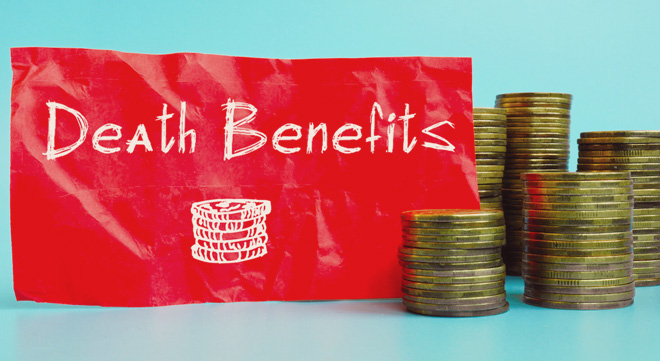An investor may have a combination of retirement funds, and the claims processes at death differ for each. Sandy van der Zanden, a wealth manager at Anchor Capital, explains what these funds are and the respective payment options.
In simple terms, retirement funds can be broken down into two main categories:
- Pre-retirement funds, which include retirement annuity, preservation, pension, and provident funds. These funds are the vehicles used to build up retirement savings over time.
- Post-retirement funds, which pay an income at retirement and are generally known as annuities. Post-retirement funds include living annuities, guaranteed annuities, and with-profit annuities.
What payment options do I have?
Beneficiaries can select either a cash lump sum, an annuity, or a combination of both.
What about estate duty and tax?
The death benefits payable from pre- and post-retirement funds do not form part of the deceased member’s estate. This means that no estate duty is payable on the death benefits. Tax is payable on any cash lump sum received, according to the retirement table of the deceased member. Any amounts invested into an annuity are transferred entirely tax-free. The income drawn from the annuity is taxable as income in the hands of the beneficiary when it accrues.
Who gets the money on death?
Beneficiaries vs dependants
Both pre-retirement funds and post-retirement funds allow investors to nominate beneficiaries on death. But there is a major difference between the two types of funds regarding the nomination and payment of beneficiaries.
Pre-retirement funds
The Pension Funds Act governs all pre-retirement funds. Death benefits are paid according to section 37C of the Act. The Act requires the fund’s trustees to consider the interests of any dependant of the deceased. This may be contrary to the wishes of the deceased. This means that even if the deceased nominated beneficiaries, the trustees must consider any dependants for a possible payout (for example, minor children and former spouses receiving maintenance). The trustees have the final say about who will receive the benefits and in what proportion.
Another important nuance is that the nominated beneficiaries of pre-retirement funds will receive the benefits only after it is established that the estate is solvent (in other words, there is enough money to settle the liabilities). If there is a shortfall in the estate, the death benefit must first be used to settle the shortfall. Any remaining benefit will then be paid to beneficiaries.
Post-retirement funds
Post-retirement funds (for example, living annuities) are treated differently to pre-retirement funds, because the Long-term Insurance Act and the Income Tax Act govern these funds. On death, these funds will be paid out according to the beneficiaries nominated or according to the terms of the contract. No dependants are considered for receipt of any benefit. This obviously provides greater certainty as to who will receive the death benefits.
This table summarises the main differences between the two types of retirement fund and how the death benefits are handled.
This article was first published by Anchor Capital and reproduced with permission.
Disclaimer: The views expressed in this article are those of the writer and are not necessarily shared by Moonstone Information Refinery or its sister companies. The information in this article does not constitute estate or financial planning advice that is appropriate for every individual’s needs and circumstances.





I think there is something a bit unclear in the Section “Who gets the money on death?”, sub-section “Pre-retirement funds”, 2nd paragraph. It says that if the estate is not solvent, then the death benefit must first be used to settle this shortfall. I believe this only applies if none of the beneficiaries are dependents of the deceased.